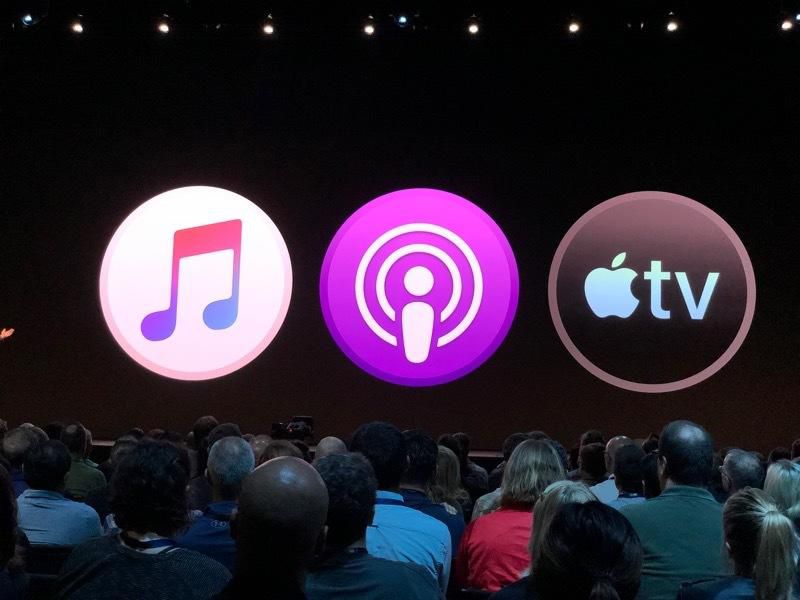 3700
3700
 2019-06-06
2019-06-06

iTunes is dead. Long live Apple Music. That's how Apple wants you to view its decision to stop updating the 18-year old iTunes service and channel your listening to Apple Music, Apple Podcasts and Apple TV instead, across all your devices. The change came this week at the tech titan's annual WWDC event in San Jose, along with a sea of other future updates for iPhones, iPads and Macs, including iOS 13, iPadOS and MacOS Catalina software. They all go into effect this fall.
Apple's musical moves underscore the company's renewed attention to services. Apple has long valued its ability to create premium experiences that keep loyal users invested in the brand's ecosystem. For a company initially focused on hardware, iTunes was one of Apple's first major successes in this area. People who had bought music from Apple were less likely to stray. Now, Apple is betting that Apple Music will largely pick up where iTunes left off.
But what happens to your iTunes music now? Closing down iTunes raises big questions for those of you who have built up musical collections over the years. What do you have to do, if anything, to keep your investment intact? What if you use iTunes for Windows? And what happens to iTunes Match?
Here's what we know about Apple's plans to transition you to Apple Music and the rest.
Yes. Apple still advertises iTunes on the website. iTunes will continue to exist for the time being, but Apple won't support it in MacOS Catalina, the upgrade coming this fall.
Apple said that iTunes was initially focused on burning and mixing songs on the Mac, but then suggested it was too big and bloated, and lost its purpose. "How about calendar in iTunes?," Apple engineering lead Craig Federighi joked during the presentation. "I mean, you can have all of your appointments and your best tracks all in one app!"
Apple describes Apple Music as being extremely fast, which suggests that iTunes performance had gotten laggy.
Yes, Apple advertises a catalog of over 50 million songs, plus collections of music videos (through Apple TV) and podcasts (through the Apple Podcasts app). Scroll to the end for more details.
No way. Every song you've ever bought, ripped, uploaded or imported will already be part of Apple Music when you upgrade from your current Mac OS version to Catalina. All the files that are already on your computer will remain. Apple isn't liquidating anything you already own, but it will reorganize where the files live.
Yep, even those. You'll find them in your Apple Music library.

Yes, if you have an external CD drive and the necessary cables, though this isn't something we've tested yet.
If you want to move music onto a device, you open one of your media apps, click and drag from your music library into the folder for your connected device, and it will transfer over.

Apple Music is a subscription service you can use across your Apple devices.
Today, iTunes pops up when you plug in your iPhone to sync devices, but that's not the case with Apple Music. If you want to sync, you'll find the setting in the sidebar in Finder. Apple is making this more opt-in (you trigger the syncing in Finder) rather than opt-out (you close the window if it pops up and bugs you).
iTunes will continue to work on Windows as is.
You can still use iTunes on a version of Mac that predates MacOS Catalina (e.g. Mojave), but it won't be available when you make the upgrade.
Yes, you can still access your music collection if you don't subscribe to Apple Music. That is completely opt-in.
The iTunes name will fade away, but Apple will keep the store and its functionality in the Apple Music app. You can call it up if you want to buy new songs and albums, but if you do subscribe to Apple Music, you likely won't have much use for a store.

iTunes Match is a feature that gives you access to a song you bought through another service, say Amazon. Apple Music already has the feature built in, so you won't miss out if you subscribe.
Yep! Any movies you bought via iTunes will move to the Apple TV app for Mac. The Apple TV app (yes, for all your devices, not just an Apple TV) is where TV shows, movies and music videos will live on the Mac, including HBO and Showtime, and those iTunes movies you bought. It'll support 4K HDR playback with HDR 10 and Dolby Vision graphics and Dolby Atmos audio playback.
Fair question, since Apple is spreading iTunes functionality around. Apple Podcasts is pretty straightforward -- it's where you listen to and search for and subscribe to shows. In MacOS Catalina, Apple Podcasts will also let you type a few words or letters to find a show or episode.
In addition to speeding up these apps, Apple encourages you upgrade to the newest version for ongoing privacy and security updates. Learn more about all the changes coming to your Mac with the MacOS Catalina upgrade this fall.
Source: CNET